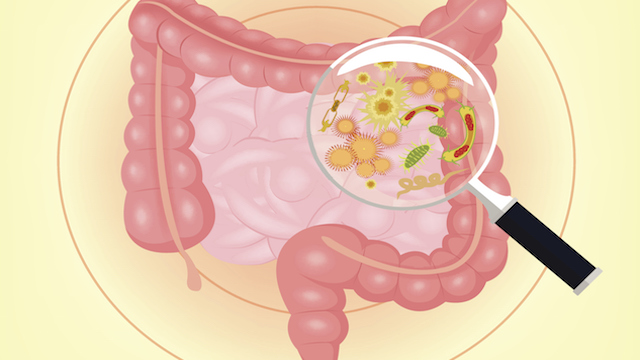
Why Is It Important to Get Rid of Gut Microbes?
Millions, if not trillions of bacteria live in an average human’s gut system. Most of these bacteria are good for health, save people from bloating or IBS symptoms. However, if the microflora of the gut is disturbed due to the prolonged use of antibiotics or recent surgery, the balance of “good” and “bad” bacteria goes wrong.
To be precise, 1,500 different species of microbes live in the gut system (usually they belong to yeasts, fungi, and bacteria). However, it is wrong to believe that taking probiotics in any kind will normalize the misbalance of “bad” and “good” bacteria in the gut. More actions have to be applied to achieve gut health.
Why is it important to keep your gut health: 5 essential rules
The healthy microbiome developed in the gut affects the whole immune system, impact the bowel syndrome, bloating and even reduced risks of having more serious maladies like Crohn’s diseases, stiffed arteries in heart, kidneys; ulcerative colitis and even certain mental disorders like major depression.
Basically, the healthy gut is the main reason why a person has a healthy immune system – about 70% of it lies within the body’s intestine. The thing is that microbiota builds the molecules growing in the blood flow and then going to the brain and other important body organs.
Many studies prove that following a few basic rules daily you may keep the gut healthy. These recommendations are quite simple:
- Eat diverse foods. Nutritionists recommend focusing on 30 different plant-based products during a weekly diet plan – seeds, whole grains, nuts, vegetables, fruit, and legumes. Never choose one food over another – it is better to eat everything in small portions (unless certain foods cause allergy or other negative reactions in your body). Such a diet can also lead to diverse microbial bodies developing in the gut.
- Eat fiber-rich products for feeding your “good” bacteria. Naturally, all high-fiber have the acclaimed prebiotics offered in supplements. Eat pulses, artichoke, Brussel sprouts, and beans. However, they can’t fully replace prebiotics offered in yogurts or supplements, like that can’t feed bifidobacteria. The U.S. healthcare organizations recommend eating no less than 50g of fiber per day, but most people consume no more than 19 g. Choosing the Mediterranean diet is the best way to follow this recommendation.
- Consume more fermented foods for developing more yeast in the gut. The wisest choice of the products in this category is kefir, yohurt, kombucha, etc. You can make all these products at home, there are a lot of recipes. If you go to a supermarket to buy fermented foods, choose kefir with 20 various yeast types and bacteria. It is recommended to drink or eat no less than 100ml of kefir or yogurt per day. It is preferable to eat the so-called “live” yogurts.
- Consider getting rid of any artificial sweeteners. In such way, you will kill two birds with one stone – reduce the calorie intake and diversify the microbiome in the gut. It is allowed to eat a 30g chocolate bar, preferably with 60-70% of pure cacao.
- Avoid following a low-carb diet. Such an approach is wrong – yes, you will lose weight but your gut microflora will be disturbed for good. Fiber is a type of carbohydrates, so make sure to include them to your daily ration.
When to take probiotics?
It has been already mentioned that probiotics and prebiotics are good for the regular intake only after a course of antibiotics or damaged gut flora. So, it is unnecessary to take these supplements if your gut system is healthy.
There are studies that proved the specific strains of bacteria could help treat certain conditions. For instance, if you’re taking antibiotics, one strain of yeast called saccharomyces received with the dose of 10 billion colony-forming-units (CFUs) twice per day can dramatically reduce the incidence of diarrhea associated with taking antibiotics, which affects around 30% of people who take them.
For example, to treat irritable bowel syndrome you may need to take different probiotics that have a high concentration of Lactobacillus and Bifidobacterium because this disorder destroys these species of the microbiome. Also, you may ask a doctor to assign a few probiotics to keep the level of dangerous Streptococcus, E. coli and Clostridium as low as possible.
When to use prebiotics?
Prebiotics stimulate the “growth” of the gut’s microflora. They are not digestible. This group includes galactose, oligosaccharides, lactulose, inulin, fructose isomers. Natural prebiotics can be found in corn, onions, garlic, and wheat.
Prebiotics help to overcome the development of the pathogen in the process of taking antibiotics. Most of them inhibit the pathogenic environment and normalize the major gut functions. They help to cope with constipation, diarrhea, bloating, and reduce nausea.
Remember, that only a doctor can recommend and prescribe synthetic prebiotics/probiotics. Taking any new supplements without a prescription can only worsen your condition.